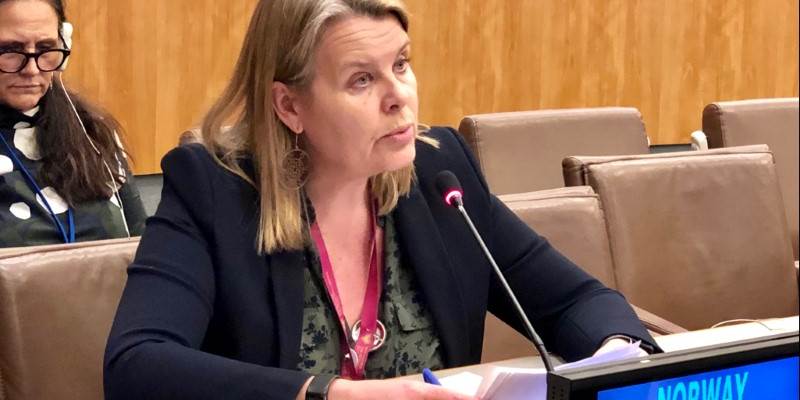It is with great pleasure I speak here today.
2019 marks the 25th anniversary of the ICPD Program of Action. It was a groundbreaking document in 1994, and it still is to this day. In Cairo, governments agreed not only on common objectives and actions, but also on a new path towards these goals built on human rights and gender equality.
These have stood the test of time, and remain fundamental to Agenda 2030.
Gender equality is about unlocking the full potential of a country. It is not a policy option. It is a human right and includes the rights fully to participate in society.
It includes young girls and women having the right to decide over their own bodies, to choose their partner and to decide when, and if, to have children.
This is the essence of the ICPD. Fundamental for both boys and girls, women and men, and integral to sustainable development.
Still, too many are deprived, of a life free of gender-based violence and harmful practice. Far too many live a life where sexual and reproductive health and rights remain far from reality.
Norway works to protect, promote and fulfill sexual and reproductive health and rights, including the right to safe and legal abortions, the possibility to legally and safely exercise their sexuality and comprehensive sexuality education.
Chair,
A lot of progress has been made since 1994, but too much remains – and the inequalities both between and within countries are striking.
We must act and close these gaps. World leaders recognized this by agreeing upon Agenda 2030 and the Sustainable Development Goals.
The Sustainable Development Goals reminds us that the challenges the world is facing, require us to come together as a global community and find common solutions.
Norway remains committed to continue our strong support to development assistant. We remain a consistent partner for our common future.
The pledge to leave no one behind is the guiding star of the SDG era.
Why is this pledge so important?
Nelson Mandela has put it best – and I quote:
‘As long as poverty, injustice and gross inequality exist in our world, none of us can truly rest’.
Too many young people lack the knowledge, access and power they need to make informed actions about their sexual and reproductive health.
Moreover, too many lack access to health services, quality education and jobs. This leaves them vulnerable.
We - as governments - have a responsibility to do what we can to enable these young people to live healthy and good lives.
To Norway, ensuring access to sexual and reproductive health and rights is a policy built on evidence and experience. To put it shortly, it works.
Chair, to conclude,
Norway remains committed to delivering on the ICPD and Agenda 2030, and reach the ones left behind.
This has been a remarkable day, where we have come together and reaffirming our commitment to the ICPD.
Let us all join efforts and work together for our girls and our boys, for their healthy lives and a fulfilling future.
